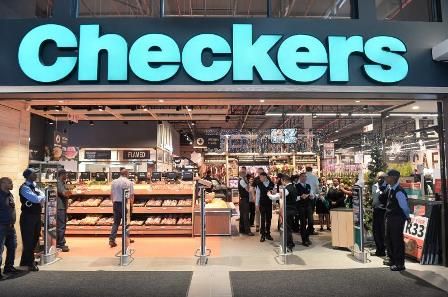
Checkers spending R1 billion a year to let customers shop during load-shedding
By: Myles Illidge - MyBroadband
South African retailer Shoprite has revealed that it spent R500 million on diesel in six months to run generators at its supermarkets in the country during bouts of load-shedding.
If load-shedding continued on the same trajectory, the retailer would spend R1 billion a year fighting Eskom’s rotational power cuts. It also spent a similar amount last year.
“Load-shedding-related power outages resulted in a R500 million diesel expense to operate generators across our South African supermarket business for the six months ended 31 December 2023,” said Shoprite.
Despite this, the retailer reported that its supermarket business in South Africa achieved sales growth of 14.6% during the six months.
However, this represents slowed growth from the 17.5% it reported for the same period last year.
“The Group’s core business, Supermarkets RSA, contributing 80.5% to Group sales, achieved sales growth of 14.6%,” said Shoprite.
“This growth is reported against the six-month period ended 1 January 2023 (‘first half 2023’) when sales increased by 17.5% on the prior period.”
The diesel expenditure figure of R500 million reported in the company’s operational update for H1 2023/24 is fairly consistent with what it revealed for the same period last year.
Shoprite said it spent R560 million on diesel to trade uninterrupted during load-shedding during the second half of 2022, which is approximately R93 million a month.
The Checkers owner isn’t the only South African retailer being hard-hit by Eskom’s rotational power cuts.
Pick n Pay’s 2022 annual report revealed that it spent R346 million during the year to run diesel generators at its stores.
All Pick n Pay and Boxer stores have backup power to allow customers to shop uninterrupted during load-shedding.
Pick n Pay said most of the additional diesel costs were concentrated towards the end of 2022, with it spending up to R60 million per month depending on the load-shedding stage.
However, the impact of load-shedding on grocery retailers extends beyond just the cost of diesel.
Pick n Pay said it also experienced increased maintenance and repair costs, some additional food waste, and dampened demand from customers during load-shedding.
“Diesel generators are not designed to run for many hours on end and suffer breakdowns,” Pick n Pay said.
It says the disruptions and inconvenience resulting from load-shedding and concerns that food may spoil during power outages at home leads to diminished customer demand.
The production of food and other goods is also disrupted, creating stock challenges which can influence sales.
News Category
- International retailers
- On the move
- Awards and achievements
- Legislation
- Wine and liquor
- Africa
- Going green
- Supplier news
- Research tools
- Retailer trading results
- Supply chain
- Innovation and technology
- Economic factors
- Crime and security
- Store Openings
- Marketing and Promotions
- Social Responsibility
- Brand Press Office
Related Articles

Empowering South African households through gro...

SPAR shares practical tips to beat food inflation

South African motorists could be paying up to R...

Big VAT changes on the cards


